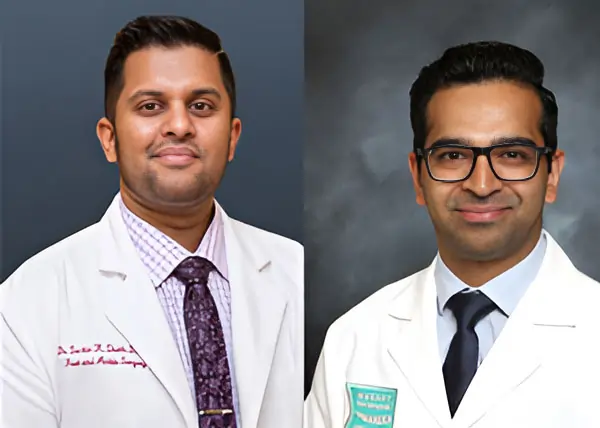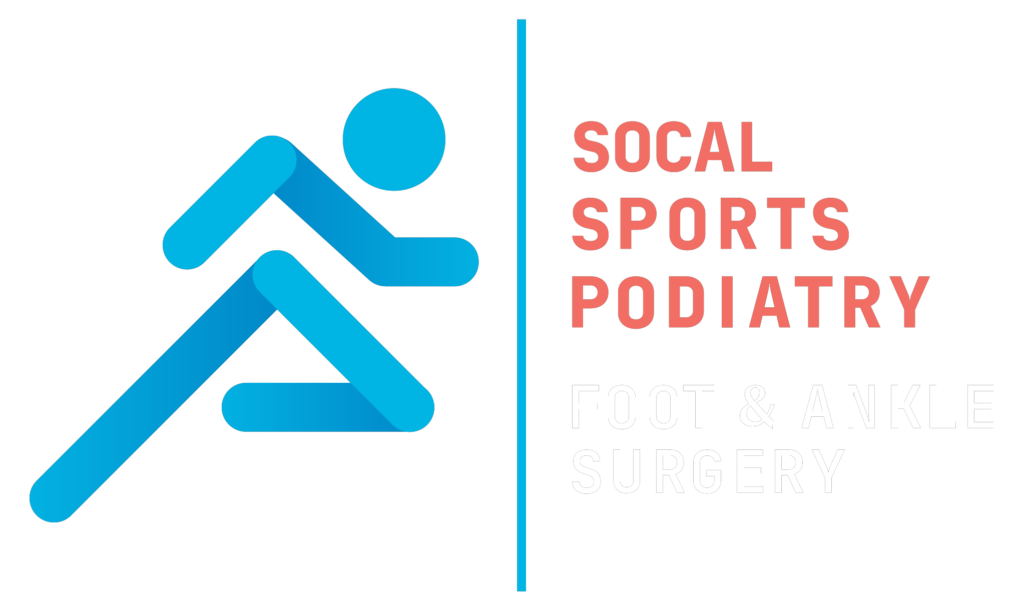
Achilles Tendinopathy and Rupture
Achilles tendinopathy and rupture are conditions affecting the Achilles tendon, which is the large tendon connecting the calf muscles to the heel bone. These conditions can significantly impact mobility and quality of life, particularly for individuals who engage in physical activities. Understanding Achilles tendinopathy and rupture, their causes, symptoms, and treatment options is essential for effective management and recovery.
Achilles Tendinopathy and Rupture Treatment in Santa Monica, CA
At SoCal Sports Podiatry, we provide effective care for Achilles tendinopathy and ruptures, focusing on pain relief and improved function. Our doctors utilize advanced techniques to address your symptoms and help you regain mobility. Schedule an appointment today to learn more about our personalized treatment options for Achilles tendon conditions.
What is Achilles Tendinopathy? Achilles tendinopathy refers to a condition characterized by inflammation, degeneration, or micro-tears in the Achilles tendon. It typically results from overuse or repetitive stress on the tendon, leading to pain and discomfort. Tendinopathy can be classified into two types: tendinitis (inflammation) and tendinosis (degeneration).
What is an Achilles Rupture? An Achilles rupture occurs when the Achilles tendon is completely torn or ruptured. This is often a result of a sudden, forceful impact or strain on the tendon, such as during sports or high-intensity activities. A rupture can cause severe pain and a sudden loss of function in the affected leg.
Causes of Achilles Tendinopathy
- Overuse: Repeated stress from activities like running, jumping, or sports that involve sudden changes in direction can lead to Achilles tendinopathy.
- Sudden Increase in Activity: Rapidly increasing the intensity or duration of physical activities without proper conditioning can strain the tendon and contribute to tendinopathy.
- Improper Footwear: Wearing shoes with inadequate support or cushioning can place excessive stress on the Achilles tendon.
- Foot Abnormalities: Structural issues such as flat feet or high arches can alter the biomechanics of the foot and increase stress on the tendon.
- Tight Calf Muscles: Limited flexibility in the calf muscles can increase strain on the Achilles tendon, leading to tendinopathy.
Causes of Achilles Rupture
Achilles ruptures are often caused by a sudden, forceful impact or strain, commonly experienced during activities like jumping or sprinting. In cases where chronic tendinopathy is present, the tendon may already be weakened, increasing the risk of rupture even from a minor injury or sudden movement.
Symptoms of Achilles Tendinopathy
Symptoms of Achilles tendinopathy typically include pain along the back of the heel or lower calf, which tends to worsen with activity and improve with rest. Stiffness is often experienced, especially in the morning or after periods of inactivity. Mild swelling and tenderness may occur around the Achilles tendon, and the tendon may appear thicker than usual due to inflammation or degeneration.
Symptoms of Achilles Rupture
Sudden Pain
A sharp, sudden pain in the back of the ankle is common, often described as feeling like a kick or a gunshot.
Swelling and Bruising
Immediate swelling and bruising around the heel and lower calf are typical.
Difficulty Walking
A noticeable inability to walk or push off the ground with the affected foot, often accompanied by a “gap” or depression in the tendon area.
Weakness
Significant weakness in the affected leg, making it difficult to perform movements like standing on tiptoes.
Diagnosis and Treatment at SoCal Sports Podiatry
At SoCal Sports Podiatry, our specialists diagnose Achilles tendinopathy and rupture through a thorough evaluation, which includes a detailed medical history, physical examination, and diagnostic imaging such as ultrasound or MRI. These tests help assess the extent of the injury and guide appropriate treatment.
Treatment Options for Achilles Tendinopathy
Rest and Activity Modification: Reducing or avoiding activities that stress the Achilles tendon allows for healing and recovery.
Ice Therapy: Applying ice to the affected area can help reduce swelling and alleviate pain. It is typically recommended to use ice for 15-20 minutes several times a day.
Footwear Adjustments: Wearing shoes with proper support and cushioning, or using custom orthotic inserts, can help reduce strain on the Achilles tendon.
Anti-Inflammatory Medications: Over-the-counter or prescription nonsteroidal anti-inflammatory drugs (NSAIDs) can help manage pain and reduce inflammation.
Physical Therapy: Targeted exercises and stretching can improve flexibility, strengthen the calf muscles, and relieve strain on the Achilles tendon.
Shockwave Therapy: Extracorporeal shockwave therapy (ESWT) may be used to stimulate healing and reduce pain in chronic tendinopathy cases.
Treatment Options for Achilles Rupture
Treatment options for an Achilles rupture typically begin with rest and immobilization using a cast or walking boot to promote healing. For more severe cases, surgical repair may be recommended to reconnect the torn ends of the tendon, followed by a period of rehabilitation. Post-surgery rehabilitation often involves physical therapy to help restore strength, flexibility, and function in the affected leg.
Preventing Achilles Tendinopathy and Rupture
To help prevent Achilles tendon injuries, it’s important to gradually increase the intensity and duration of physical activities to avoid overloading the tendon. Wearing supportive shoes with adequate cushioning can reduce stress on the Achilles, while incorporating calf stretching and strengthening exercises into your routine can improve flexibility and tendon support. Regularly monitoring for symptoms and addressing any early signs of tendinopathy can help prevent the condition from progressing to a more serious rupture.
For diagnosis and treatment of Achilles tendinopathy and rupture, visit SoCal Sports Podiatry at our office. Our team of specialists is dedicated to providing personalized care to help you recover from tendon injuries and return to your active lifestyle. Call us at (310) 395-5025 to schedule an appointment and start your journey toward recovery.

Contact Us
Services
Testimonials
Had a great experience overall! Dr. Sheth did an amazing job with my foot and has a great sense of humor as well! Highly recommend them.
Dr. Patel was very personable and kind to my 87 year old uncle. He took time to explain what was happening with his healing process and asked if we needed anything else. I appreciate his demeanor and expertise.
This is the most promise I've seen after four other surgeries. Both Dr. Patel and Sheth are great. They are fast - turned it around in less than a week and their surgery coordinator, Matty is amazing. This foot has been an unbelievable burden and I genuinely feel excited by how this seems like it's turning out...excellent service, smart and friendly doctors.
Scheduling an appointment and filling out the online patient form was very easy. Jordan the medical assistant who also did the scheduling was very cordial and helpful. Dr. Sheth was professional and friendly and never once pushed for unnecessary procedure.
SoCal Sports Podiatry
2001 Santa Monica Blvd. Suite 465-W
Santa Monica, CA 90404
(310) 395-5025



